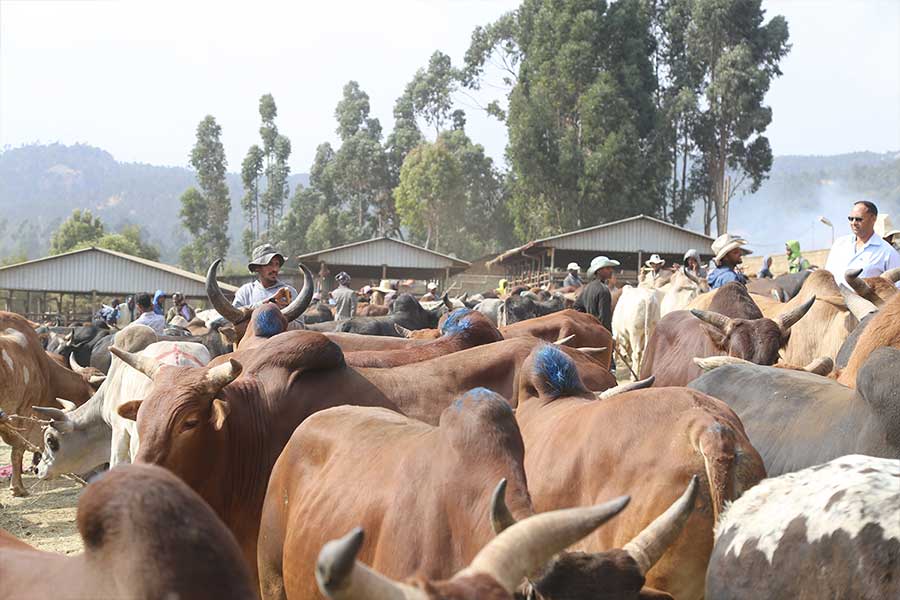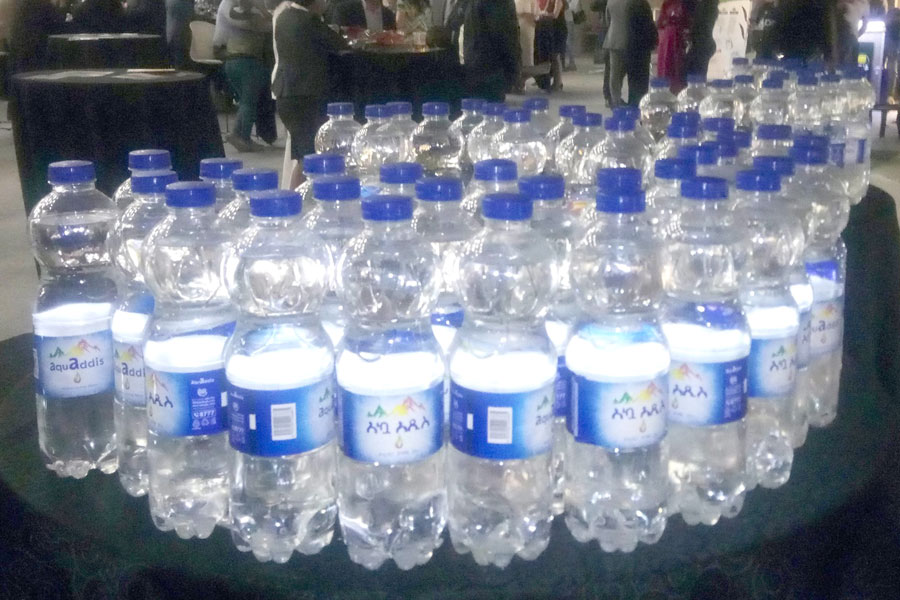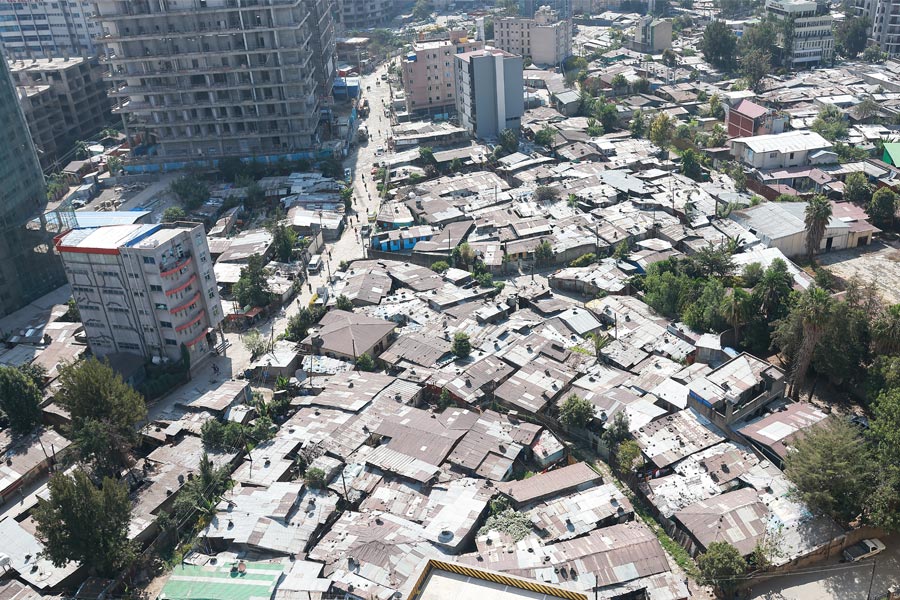
Fortune News | Jul 18,2020
Ontex Hygienic Disposables Plc, a renowned manufacturer of Canbebe diapers, finds itself embroiled in a protracted dispute with federal tax authorities, a conflict that has recently escalated with the seizure of the company's assets. This marks a significant setback for the diaper producer operating within the Hawassa Industrial Park for over five years.
The dispute goes back to Ontex's initial entry in 2017.
Under the managment of Argentinian executive Charles Bouaziz, the company invested 25 million Br with ambitions to tap into the regional diaper market. Operating from two expansive sheds in the Industrial Park, Ontex quickly made a name for itself with a production capacity that could churn out half a million diapers every four hours. This rapid scale-up was backed by the promise of duty-free privileges, granted on the condition that Ontex would export its products.
However, Ontex's journey was fraught with troubles from the onset. The company struggled to find international buyers for its products, particularly its flagship Canbebe Diapers. According to Girum Haileleul, Ontex's supply chain manager, the high cost of production, compounded by logistical complexities, caused Ontex's products less competitive in the global market. The situation was exacerbated by what Girum described as a lack of support from the Ethiopian Customs Commission (ECC) officials.
"They drove us out of business," he told Fortune.
Ontex inability to meet export requirements became increasingly apparent, leading to non-compliance and, hence, the watchful eyes of customs officials. They took over Ontex's plant in the Park, which had been inactive for over two years. The climax of the events was the seizure of the company's assets a month ago, a dramatic turn of events for the once-thriving manufacturer, despite some reduction in the levied taxes through ministerial intervention.
Although factories within industrial parks are expected to export all their merchandise, Ontex's initial venture into the manufacturing sector involved agreements with the Ethiopian Investment Commission (EIC) and the Ministry of Industry. It was allowed up to 40pc of its output to be sold in the domestic market. The plan did not materialise, aside from a few containers being shipped to Eritrea as the border opened in 2018. Ontex's failure to comply led to the eventual closure of its operation.
Belay Hailemichael, a branch manager at the Commission, noted that Ontex's failure to export was initially overlooked due to its dominance in the domestic market and contributions to import substitution. Canbebe diapers were initially imported by Tracon Trading Plc, which stopped diaper imports four months ago due to foreign currency shortages, and 14 other importers. In the first month of 2020 alone, Ethiopia imported over 294,000 dollars of diapers, mainly from China.
However, patience wore thin as Ontex continued to fall short of its export commitments, said Belay.
The company's troubles were further compounded by a post-clearance audit conducted by the Park's ECC branch. The audit revealed discrepancies in input-output reconciliation and alleged abuse of duty-free privileges, leading to claims by federal tax authorities of approximately 400 million Br in tax receivables. According to Gedana Tsegaye, deputy head of the Customs Branch at the Park, Ontex disputed these findings, setting off appeals and prolonged legal litigations.
The dispute reached a pressing juncture when the company was instructed to vacate the premises of the Industrial Park at the end of 2020, following repeated warnings to begin exporting. It came against a backdrop of broader turmoil the manufacturing sector faced. A World Bank report disclosed the lack of effective coordination between public institutions as a main obstacle to encouraging a thriving investor class.
Ontex's senior managers, including General Manager Gabriella Moreno and CFO Fasil Issac, Timothy Muhnaji, the plant manager and Girum say they have struggled to address these issues, but claim their efforts were met with diminishing support from the Ethiopian authorities.
Anbessaw Serebe, facilitator of Industry Parks at the Commission, disagreed. According to him, continuous support was provided by the Commission since the company's entry into the country, recognising its size and international standing. However, support waned when Ontex's management left the plant two years ago.
"They abandoned the plant," he said.
Anbessaw recalled Ontex's appeal for a review of duties imposed on it three years ago as it struggled to find export markets.
"It was possible to reduce the taxes," he told Fortune.
Manufacturing and export trade directorate facilitator at the Customs Commission, Tolesa Dirjena, identifies the challenges Ontex faced arising from one core issue.
"Factories who can't export don't get to operate within industrial parks," he told Fortune.
Exports from industrial parks, including Hawassa Industrial Park, have seen a decline of 24pc. With a 20 million dollar monthly capacity, the Park only meets 15pc of its export potential. The situation reflects a broader issue within the industrial sector, where manufacturers fight against high logistics costs, a monopolised logistics sector, and an overvalued currency.
Million Kibret, managing partner of BDO Consulting Plc, called for policy overhauls, including currency liberalisation and increased private sector involvement in logistics.
Industry insiders also emphasise the need for strategic planning and comprehensive policy reforms to create a conducive environment for sustainable industrial growth. The case of Ontex, they argue, shows the pitfalls of poor initial business planning and a failure to adapt to market realities.
"It's a trap for setting unattainable targets," Million told Fortune.
Hibret Lema, leader of the 22-member Investors Association inside the Park, believes the shutdown reflected broader constraints manufacturers face. Hibret observed that Ontex addressed its problems without seeking intermediate assistance from the local industry.
"It's disheartening," he told Fortune.
PUBLISHED ON
Dec 30,2023 [ VOL
24 , NO
1235]

Fortune News | Jul 18,2020

Fortune News | Dec 10,2018

News Analysis | Mar 04,2023

Radar | Sep 27,2025

Fortune News | Sep 28,2024

Viewpoints | Mar 13,2021

Radar | Jul 27,2025

Fortune News | Oct 05,2025

Fortune News | Nov 25,2023

Life Matters | Jun 10,2023

Dec 22 , 2024 . By TIZITA SHEWAFERAW
Charged with transforming colossal state-owned enterprises into modern and competitiv...

Aug 18 , 2024 . By AKSAH ITALO
Although predictable Yonas Zerihun's job in the ride-hailing service is not immune to...

Jul 28 , 2024 . By TIZITA SHEWAFERAW
Unhabitual, perhaps too many, Samuel Gebreyohannes, 38, used to occasionally enjoy a couple of beers at breakfast. However, he recently swit...

Jul 13 , 2024 . By AKSAH ITALO
Investors who rely on tractors, trucks, and field vehicles for commuting, transporting commodities, and f...

Oct 25 , 2025
The regulatory machinery is on overdrive. In only two years, no fewer than 35 new pro...

Oct 18 , 2025
The political establishment, notably the ruling party and its top brass, has become p...

Oct 11 , 2025
Ladislas Farago, a roving Associated Press (AP) correspondent, arrived in Ethiopia in...

Oct 4 , 2025
Eyob Tekalegn (PhD) had been in the Governor's chair for only weeks when, on Septembe...